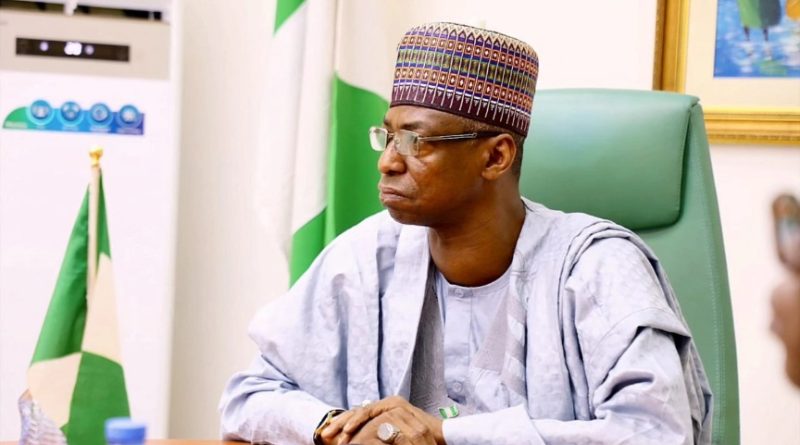FG meets diplomats, says U.S. religious persecution claim ‘misinformed’
Nigeria has dismissed its recent designation by the United States as a violator of religious freedom, describing the move as “fundamentally misinformed” and inconsistent with the country’s secular and constitutional character.
Speaking on Wednesday during a briefing with members of the diplomatic corps in Abuja, Dunoma Ahmed, Permanent Secretary in the Ministry of Foreign Affairs, said Nigeria remains firmly committed to protecting the rights of all citizens regardless of faith, ethnicity, or political affiliation.
“Recent external claims suggesting systemic religious persecution in Nigeria are unfounded. Our constitutional order guarantees freedom of religion, conscience, and association, and provides equal protection under the law for all”, Ahmed declared.
The statement followed the decision of United States President Donald Trump to reclassify Nigeria as a Country of Particular Concern (CPC), a State Department category reserved for nations accused of severe violations of religious freedom.
Read also: Trump threatens to launch military attacks in Nigeria over Christian killings
Trump had cited attacks on Christians by “radical Islamists” as justification for the designation, even threatening possible military action against Nigeria.
The move has heightened diplomatic tensions between both countries as Nigerian government argue that the U.S. label fails to reflect the complex realities of Nigeria’s internal security challenges, where victims of violence cut across both religious and ethnic divides.
“The CPC designation misrepresents Nigeria’s secular constitutional order,” Ahmed said, stressing that most conflicts in the country stem from criminality, resource competition, and communal disputes rather than government-sanctioned persecution.
He added: “Nigeria’s laws contain no offence of blasphemy, and our public-order laws are religion-neutral. The government, judiciary, and interfaith councils continue to protect citizens of all faiths.”
Ahmed urged the international community to engage Nigeria on the basis of truth, mutual respect, and cooperation in the shared pursuit of peace and stability.
Representing Yusuf Tuggar, Minister of Foreign Affairs, the Permanent Secretary also used the platform to brief foreign envoys on the progress of President Bola Tinubu’s “Renewed Hope” agenda, describing it as “bold, far-reaching, and structurally transformative.”
He said the administration has embarked on a comprehensive reform drive aimed at restoring macroeconomic stability, attracting investment, and ensuring inclusive growth.
According to him, key measures such as the unification of the foreign exchange market and the removal of fuel subsidies have already begun to yield results by reducing market distortions, boosting remittances, and promoting transparency in public finance.
Ahmed explained that savings from subsidy removal are being channelled into social investments and infrastructure through programmes like the Infrastructure Support Fund and the Renewed Hope Conditional Cash Transfer Scheme.
He disclosed that Nigeria’s crude oil production has risen above 1.6 million barrels per day following improved security around pipelines and renewed collaboration with international oil companies.
He added that the phased operations at the Dangote Refinery and ongoing rehabilitation of the Port Harcourt, Warri, and Kaduna refineries would soon reduce the nation’s dependence on imported fuel.
“Nigeria remains committed to implementing the Petroleum Industry Act (PIA), promoting gas commercialization, and achieving energy self-sufficiency through investments in natural gas and renewable energy,” he stated.
The Permanent Secretary further noted that the government is accelerating diversification through agriculture, mining, and the digital economy.
He highlighted programmes such as the National Agricultural Growth Scheme and Special Agro-Processing Zones as key to driving food security and export growth.
He also said reforms in the mining sector have enhanced transparency and community participation, while the National Digital Economy Policy and Strategy (NDEPS) has expanded broadband access and financial inclusion, propelling growth in fintech, e-commerce, and creative industries.
On human capital development, Ahmed cited the Student Loan (Access to Higher Education) Act and the establishment of the Nigerian Education Loan Fund (NELFUND) as landmark interventions ensuring access to tertiary education for financially constrained students.
He noted that the administration is also prioritising technical and vocational education in partnership with states and the private sector to equip Nigerian youths with skills in ICT, manufacturing, and renewable energy.
Micro, Small, and Medium Enterprises (MSMEs), he said, are receiving targeted financial support through the Bank of Industry, Development Bank of Nigeria, and the Presidential Palliative Loan Scheme to boost innovation and entrepreneurship.
Ahmed also reaffirmed that the Renewed Hope Infrastructure Plan (RHIP) continues to drive progress in roads, railways, housing, and power development.
He said the Presidential Power Initiative (Siemens Project) is expanding generation capacity and grid reliability, while the Renewed Hope Cities and Estates Programme is addressing Nigeria’s housing deficit.
On national security, the Permanent Secretary assured that counterterrorism operations such as Operation Hadin Kai and Operation Lake Sanity have significantly degraded insurgent groups and facilitated the return of displaced persons.
He reiterated that Nigeria remains a secular and democratic nation, guided by the principles of equality, justice, and peaceful coexistence.
“Nigeria is a resilient and vibrant democracy confronting complex security challenges, not a state of religious persecution.
“Through our Constitution, courts, and institutions, we remain committed to peaceful coexistence and global partnerships built on truth and mutual respect”, Ahmed said.
He reaffirmed Nigeria’s desire to deepen diplomatic ties as the Tinubu administration continues its reform drive, describing the ongoing initiatives as “game changers” in the country’s march toward economic transformation and social progress.

